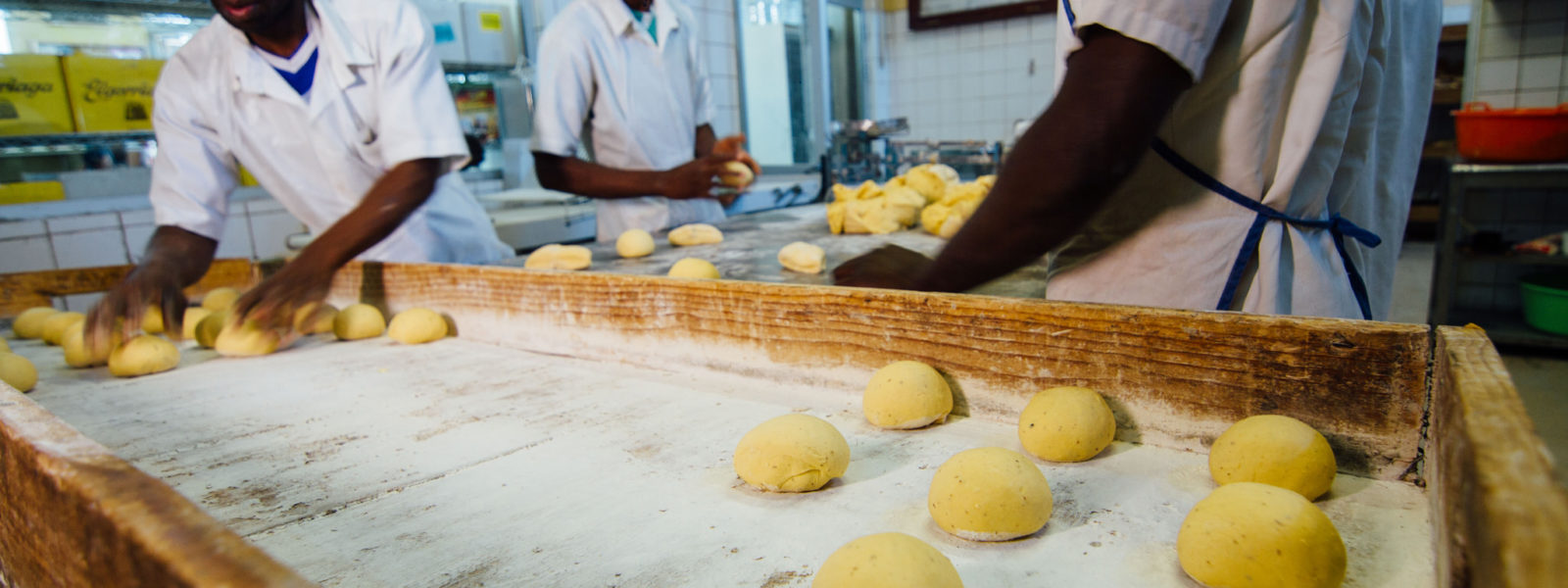Orange-fleshed sweetpotato purée is a profitable and nutritious commercial product to meet urban consumers’ needs in Kenya.
Vitamin A deficiency is a serious problem in East Africa. Through the efforts of the International Potato Center (CIP) and its partners, many vitamin A-rich, orange-fleshed sweetpotato (OFSP) varieties have been made available to rural households. As Africa is rapidly urbanizing, more people want to buy food that is ready to eat or easy to prepare.
Earlier research in Rwanda demonstrated that OFSP purée (steamed, mashed roots) was an economically viable ingredient in baked products when the purée was produced and used in the same bakery. Between 2010 and 2014, CIP and the Rwanda Agricultural Board worked with a bakery, Urwibutso Enterprises, to make biscuits and donuts from sweetpotato purée. The bakery made its own purée and used the waste for animal feed at their piggery. However, most bakeries do not want to make purée or deal with the waste.
“The challenge for us as researchers was to develop a more complex market chain that could take orange-fleshed sweetpotatoes all the way from the field, through processing and baking, to reach consumers with bread that was rich in vitamin A,” noted Dr. Tawanda Muzhingi a food scientist at CIP. In 2014, the Center began to work with a wider range of value chain actors in Kenya to develop baked goods made with OFSP. During product development, the food technology specialist at Euro Ingredients Ltd. created improved OFSP bread, buns and cake recipes.
 Continue reading the story in the RTB 2017 Annual Report: From science to scaling.
Continue reading the story in the RTB 2017 Annual Report: From science to scaling.
